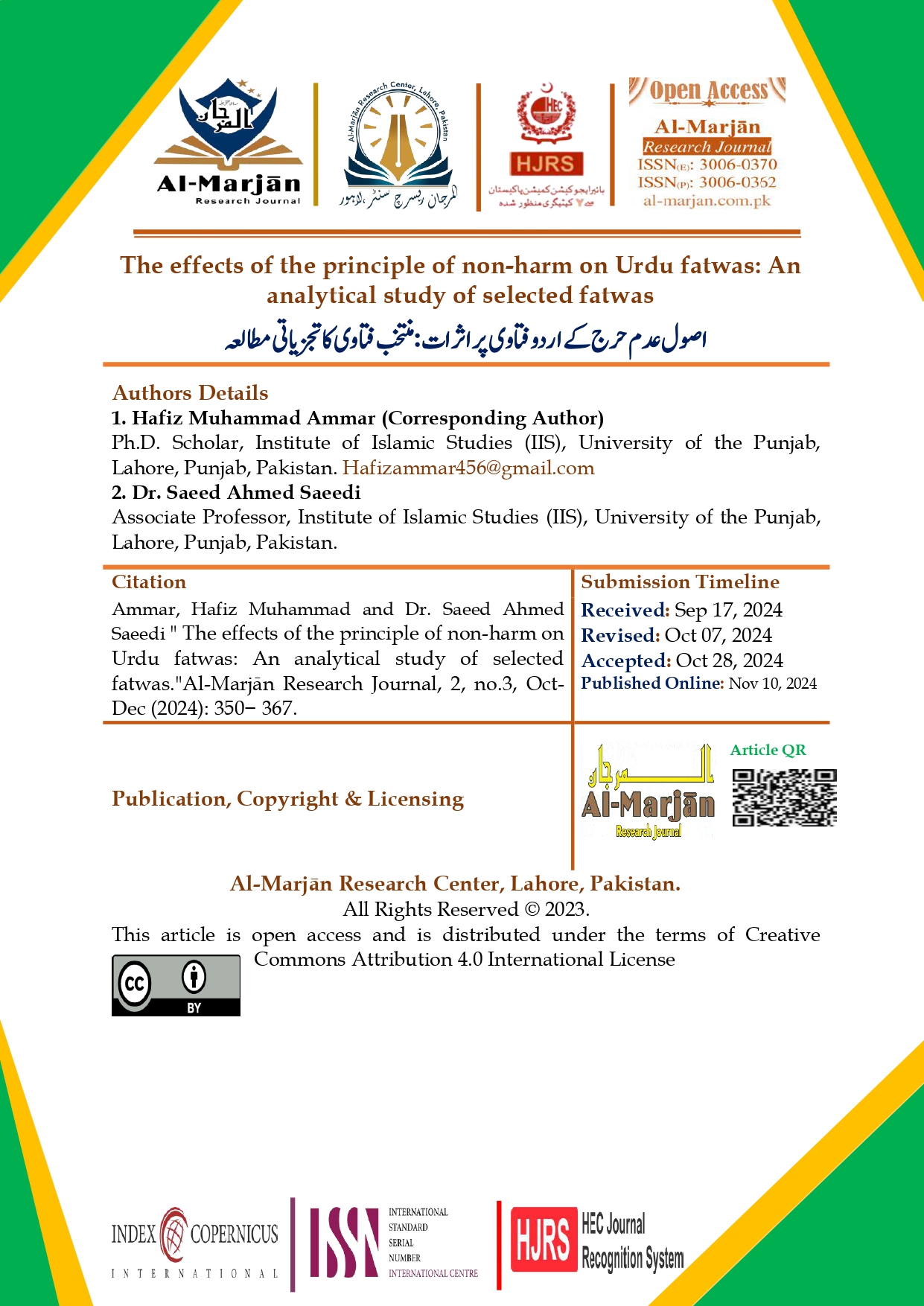The effects of the principle of non-harm on Urdu fatwas: An analytical study of selected fatwas
اصول عدم حرج کے اردو فتاوی پر اثرات :منتخب فتاوی کا تجزیاتی مطالعہ
Keywords:
Islam, Ease and Simplicity, La Haraj (Removal of Hardship), Islamic Jurisprudence, Fatwas, Contemporary Issues, Modern Challenges, Shariah Principles, Flexibility in Islam.Abstract
Islam is a religion of ease and simplicity. Recognizing human nature and its inherent needs, Allah Almighty has structured His commands to ensure they align with human requirements and welfare, removing every form of hardship and inconvenience from human life. Whenever a command exceeds human capacity or entails excessive difficulty, either the command is abrogated or its nature is altered to accommodate ease. This principle of facilitation is not limited to a specific aspect of life but encompasses all dimensions, including worship, transactions, social relations, economy, and politics. The foundational principle of "La Haraj" (the removal of hardship) serves as the basis of all Islamic injunctions. Contemporary Islamic scholars and jurists have extensively applied this principle while addressing modern and contemporary issues in their legal verdicts. They have resolved complexities and potential difficulties in various domains by applying this principle within specific limits and conditions. This research article, titled "The Principle of La Haraj and Its Impact on Urdu Fatwas: An Analytical Study of Selected Fatwas," examines the influence of the principle of ease on the evolution of Islamic jurisprudence in contemporary times. By analyzing selected Urdu fatwas, the study highlights how jurists have successfully integrated this principle to address pressing modern issues, ensuring that Islamic rulings remain practical and relevant while upholding the core values of the Shariah. The research underscores the flexibility of Islamic law in mitigating hardship and its ability to cater to the evolving needs of society.






































